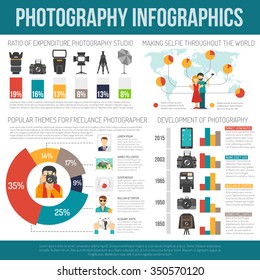Typical Mistakes New Photographers Make And How To Avoid Them
Typical Mistakes New Photographers Make And How To Avoid Them
Blog Article
Created By-Morris Fenger
As a new professional photographer, it's very easy to get caught up in the appeal of premium equipment and ignore the basics that genuinely boost your craft. You might find yourself irritated when your photos don't mirror the vision you wanted. Usual bad moves, like overlooking lighting basics or ignoring structure concepts, can hold you back greater than you realize. Yet understanding these risks can transform your technique. Allow's discover these mistakes and just how you can avoid them to enhance your digital photography trip.
Ignoring Lighting Fundamentals
Neglecting illumination fundamentals is just one of the biggest bad moves new professional photographers make. You could believe that capturing a great picture is all about your camera setups or the current gear, but the reality is, illumination is critical. Correct illumination can boost your images from mundane to magnificent, and comprehending it can save you from plenty of missed possibilities.
First, take notice of all-natural light. The golden hours-- shortly after dawn and before sunset-- provide soft, complementary light that boosts your topic. Stay clear of extreme lunchtime sun, which can cast unflattering shadows. If you're shooting indoors, place your topic near home windows to capitalize on diffused light.
Next off, discover to manipulate fabricated lighting. Try out various sources, like lights or outside flash. Use reflectors to jump light back onto your subject for a softer impact. Do not fail to remember that shadows can add deepness; embrace them instead of hesitating.
Ultimately, practice adjusting your video camera setups according to the illumination conditions. Understand how shutter speed, aperture, and ISO work together to achieve the preferred direct exposure.
Overemphasizing Devices
Numerous new professional photographers fall under the catch of believing that having the most up to date and biggest equipment will automatically enhance their digital photography. While it's appealing to believe that a higher-end camera or an elegant lens will boost your work, the fact is that it's not almost the devices you utilize.
Your abilities, creativity, and understanding of photography play a much larger role in producing magnificent images. Buying first-class equipment can be helpful, however it should not be your primary emphasis. Instead, focus on mastering the basics-- light, composition, and storytelling.
You can take awesome pictures with a straightforward cam if you understand how to use it successfully. Usually, it's the photographer's vision, not the equipment, that makes the distinction.
Additionally, overemphasizing tools can lead to stress and exhaustion. You may find yourself constantly chasing after the following piece of equipment instead of sharpening your craft.
Neglecting Structure Principles
When you get your camera, it's simple to concentrate only on the subject, however overlooking composition concepts can lead to dull images. read more is the backbone of digital photography; it guides the visitor's eye and develops an aesthetic narrative. If you ignore it, your stunning subject may obtain lost in a messy frame.
Begin by applying the guideline of thirds. Imagine your framework split right into nine equal components by two straight and 2 upright lines. Placement crucial elements along these lines or at their junctions for a balanced and engaging shot.
Additionally, think about leading lines. Usage read full article in your scene to attract the customer's eye toward the topic.
Do not forget about framing. Usage bordering aspects to develop a "structure within a framework." This technique can add deepness and focus to your topic.
Lastly, pay attention to unfavorable area. Sometimes, much less is extra. Allowing void can improve your centerpiece and produce a more powerful picture.
Final thought
Finally, by steering clear of these typical challenges, you can boost your digital photography abilities substantially. Focus on mastering illumination, structure, and exposure as opposed to getting shed in costly equipment. Do not take too lightly the power of post-processing, either-- it can truly change your images. Keep in mind to select the right time of day for shooting, as illumination plays an important function in your final results. Welcome these tips, and enjoy your digital photography thrive!
